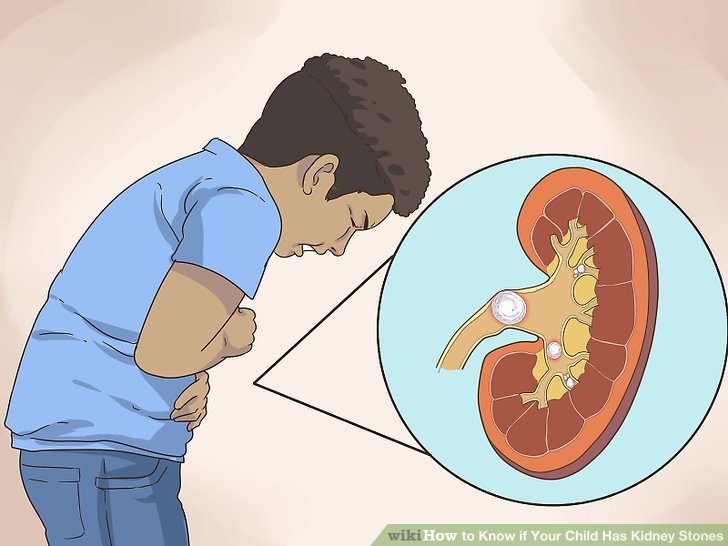The kidney stones are solid masses composed of crystals which are present in the kidneys or urinary tract. They are one of the most painful conditions in medical sciences and vary in types according to the gender and underlying conditions. The most common include calcium, struvite, uric acid and cystine.
What Causes Kidney Stones Formation?
There are multiple causes for the formation of kidney stones:
- Lack of mobility
- Hereditary factors
- High protein and less fiber diet
- Lack of fluid intake
- Common in Caucasians and women
- Hyperparathyroidism
- Frequent urinary tract infections
Signs and Symptoms of Kidney Stones:

Signs and Symptoms Whether You Have Kidney Stones or Not – Image Credit: WikiHow.com
If you are having some of the following signs and symptoms, then there are great chances that you are suffering from stones formation in one or both of your kidney. In that case you are advised to get your detailed medical checkup.
- Frequent urge to urinate
- Less amount of urine
- Blood in the urine
- Fever, chills, vomiting and nausea
- Burning sensation while urinating
- Foul smelling urine with dark color
How Presence of Stones in Kidneys Can Be Diagnosed?
The diagnosis of kidney stones is done in multiple ways.
- Blood test to examine presence of calcium, nitrogen, phosphorus, electrolytes, crystals, bacteria and uric acid.
- Ultrasound of kidneys
- MRI of abdomen and kidneys
- Urinalysis
What Is The Conventional Allopathic Way To Treat Stones in Kidneys?
- Pain killers to alleviate the excruciating pain caused by the stones to the renal canal and kidneys.
- Antibiotics are prescribed to heal the wounds and bruises quickly.
- Diuretics, sodium carbonate or citrate, phosphorus solution and allopurinol are prescribed to balance the pH.
- A procedure known as lithotripsy is followed when the stones are of large sizes that are unable to move in the canal. They are broken down in to smaller pieces with the help of sound waves, which causes them to move into the bladder and later on flushed out from the system with urine.
- Tunnel surgery, in which a small incision is made at the back to remove the stones of larger size.
How Homeopathic Treatment Can Remove Kidneys Stones Without Surgery Or Operation?
In homeopathy the treatment is done after careful examination of the symptoms followed by predisposition of the conditions which ensures that the condition is terminated properly and completely, not temporarily. In the case of removing kidney stones a variety of treatments are available which are prescribed according to the personality type, including the symptoms as well.
- Phosphorus
- Sarsaparilla
- Benzoic acid
- Nux Vomica
- Lycopodium
- Hydrangea
- Calcarea carb.
- Belladona
For example, belladonna is prescribed when the pain is sharp and shooting whereas in case of a foul smelling urine benzoic acid is given.
Comparison of Allopathic vs Homeopathic Treatment For Kidney Stones
The human race has seen an enormous growth in medical sciences, three different ways of treatments i.e. Herbal, allopathy and homeopathy are used to cure the disease/condition. When we consider the specific case of kidney stones, it can be cured in all the ways. However homeopathic treatment is better because:
- Side effects of the antibiotic and excessive use of pain killers damage the other organs.
- Surgeries provide timely relief e.g. in patients less than 25 years of age there is likely more chance of having stones again.
- The lithotripsy breaks the stone but sometimes the pieces stuck in the other organs, also internal bleeding leads to further damage.
- The homeopathic eradicates the problem completely by dissolving the stones using mineral based medications.
- Lastly, homeopathy is economical.
The surgical procedures are not advised for the diabetics, heart patients and hypertension patients. For them, homeopathy is the most suitable form of treatment.
Do You Need Safe Homeopathic Treatment of Kidney Stones?
If you or someone in your friends or family are suffering from acute or chronic Kidney Stones issue, then you can submit your case here and get safe treatment to get rid of kidney stones without surgery.
